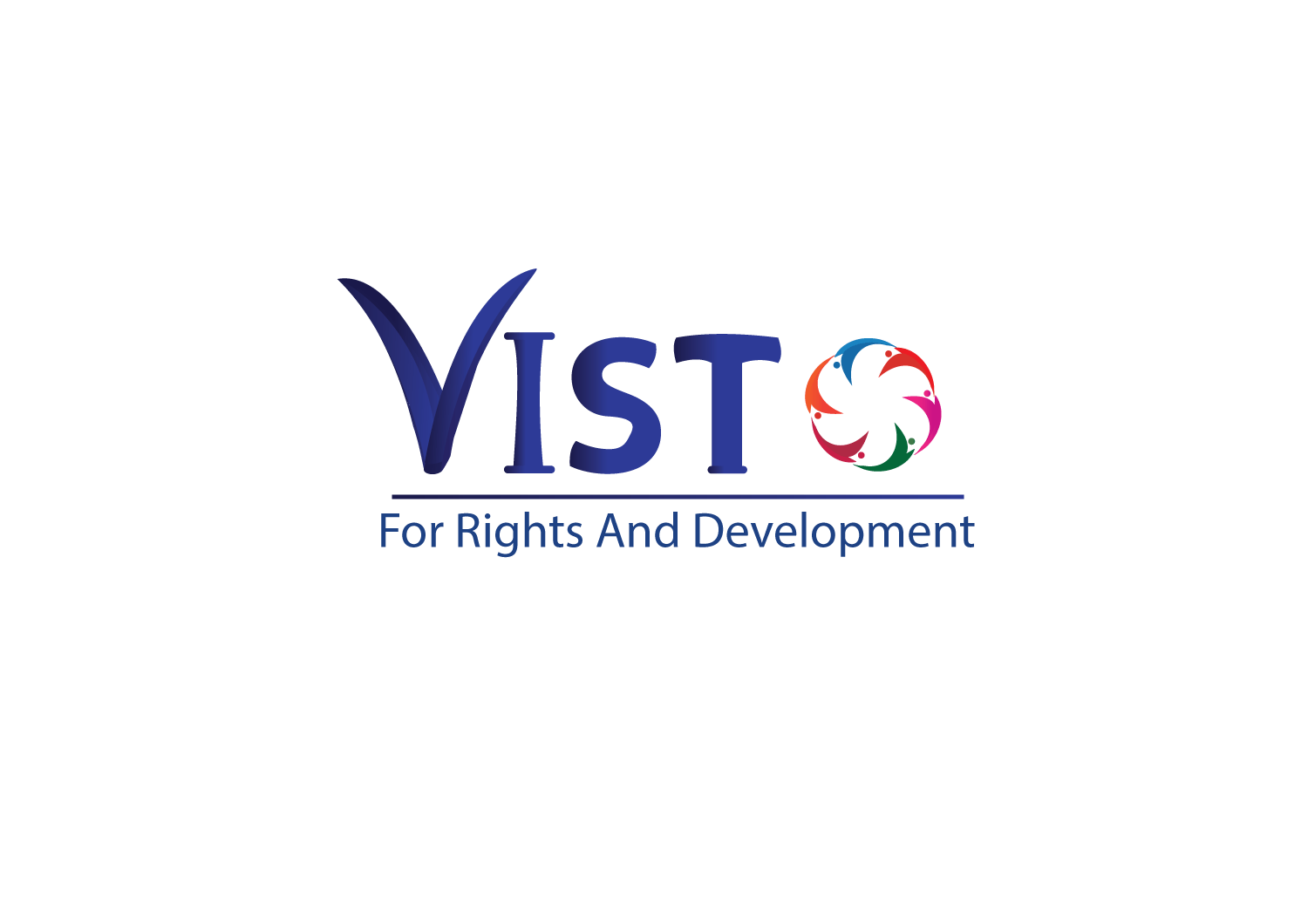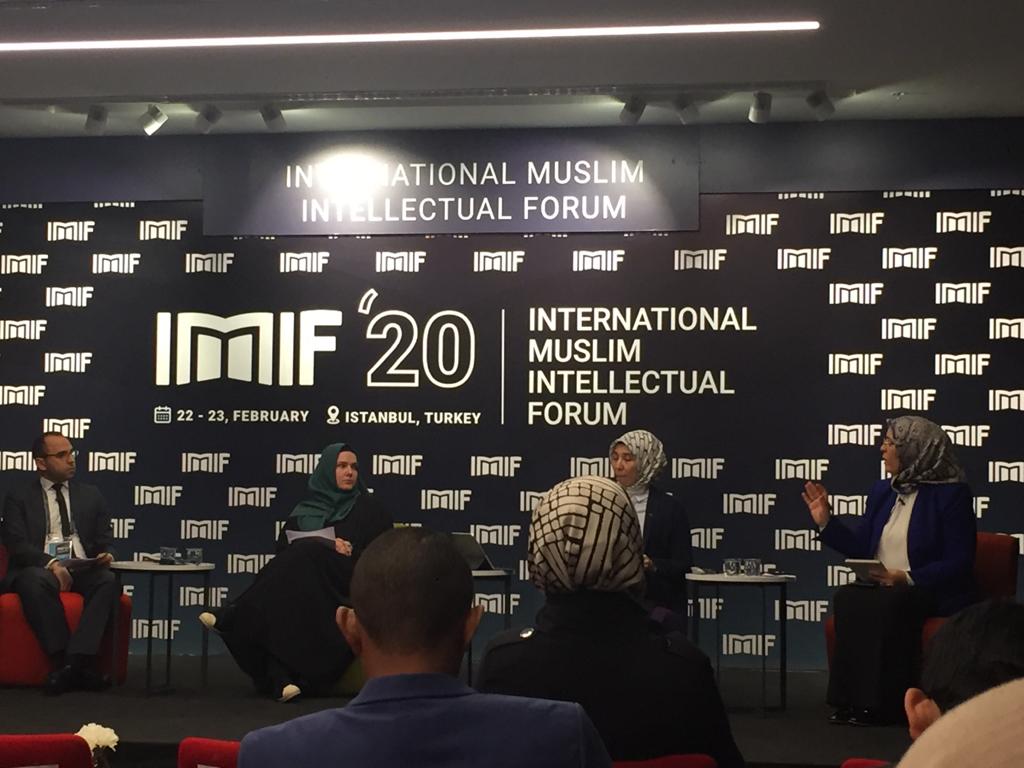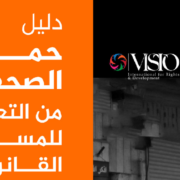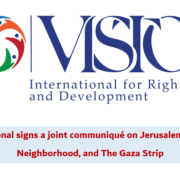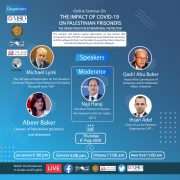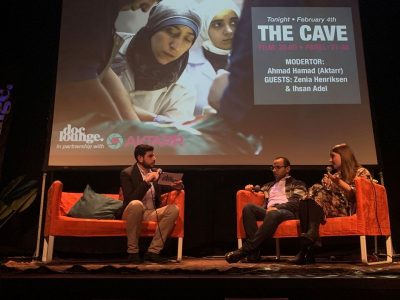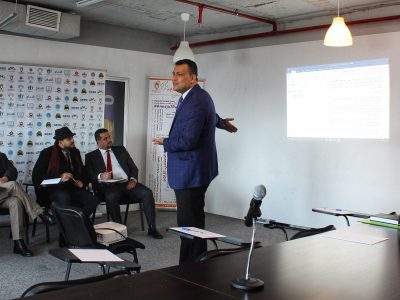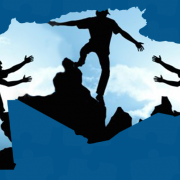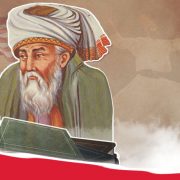Visto International for Rights and Development participated in an Istanbul-held Islamic Cooperation Youth Forum (ICYF) on February 22-23 under the title: “Youth and Gender Discourse in the Muslim World”. In the conference, Visto International’s Vice-President, Ihsan Adel, presented a paper on the legal and other obstacles to immigrant women’s integration in Europe’s labour market.
More than 400 researchers and attendees from different countries participated in the OIC member states-organised conference in partnership with Ibn Haldun University in Istanbul.
As part of his address, Ihsan Adel called for focusing on and spreading awareness of women’s rights in the Arab and Muslim world, stressing that women in Muslim societies are still lacking basic rights.
At the official level, Adel said, most Arab and Muslim countries still have reservations about the Convention on the Prevention of Discrimination against Women (CEDAW). At the practical level, civil society workers are increasingly complaining about what is described as fundamentalist groups constituting a major challenge to their work, and sometimes, a threat to their safety and security.
Adel responded to allegations that view freedom of religion and equality between men and women as contradictory, even though these two standards are both protected under human rights laws. International law calls for equality and also calls for respecting religious differences, and therefore there’s no contradiction between the two, Adel reiterated.
Adel also stressed the need to adhere to a holistic approach to human rights as agreed in the Universal Declaration of Human Rights, which was agreed upon by all countries, and which stipulates that human rights are universal, interdependent and indivisible.
Adel added that, what is required is that Arab and Muslim countries seek to highlight these issues and discuss them at the religious, educational and political institutional levels. He added that such a discussion will show there’s no contradiction between the freedom of religion and equality, and will contribute to combating gender discrimination.
Adel further warned that MENA migrant women are facing enormous problems in Europe, and that they are often subjected to discriminatory treatment by employers because of their skin colour, ethnicity and/or gender.
Ihsan Adel: MENA culture, Islam and the high levels of religiosity are considered among the main obstacles to women’s participation in the European workforce
There are persistent fears highlighted by human rights reports, whether in the U.S., the U.K., Europe or Australia, that migrants, especially Muslim migrant women, have experienced difficulties participating in the workforce, which contributed to high levels of unemployment in these countries, Adel warned.
According to reports issued by European official agencies, among the refugee women from seven countries (Afghanistan, Bosnia, Eritrea, Iran, Iraq, Kosovo, Somalia), only Bosnians had higher than average employment rates among refugee women in Europe. On the other hand, MENA culture, Islam and the high levels of religiosity are considered among the main obstacles to women’s participation in the European workforce.
During his intervention, Dr. Hassan Obaid, director of research at Visto International’s Europe Office, invited young people, academics and institutions to work together to develop ideas regarding the problems facing the region and ways to address them.
Obaid said that Visto International is working from Sweden and the MENA region to enrich concepts, promote practices and exchange knowledge and experiences in order to address issues of sustainable development and human rights in the Middle East and North Africa as well as in MENA-refugee and -emigrant communities around the world.
“Visto aims to raise awareness, promote development and communicate voices of change to decision makers, while seeking to have a human rights-oriented journalism that protects human rights and contributes to development”, Obaid said.
Visto international organises projects that address problems facing these communities, but also supports, receives, translates, issues and widely disseminates research articles. The organisation also holds training courses and organises workshops, conferences and constructive dialogues in order to encourage debate and networking among the various actors, Obaid explained.
Visto International aims to raise awareness, promote development and communicate voices of change to decision makers, while seeking to have a human rights-oriented journalism that protects human rights and contributes to development, Obaid said. He also noted that the organisation is looking forward to influencing mindsets among MENA citizens and refugees.
